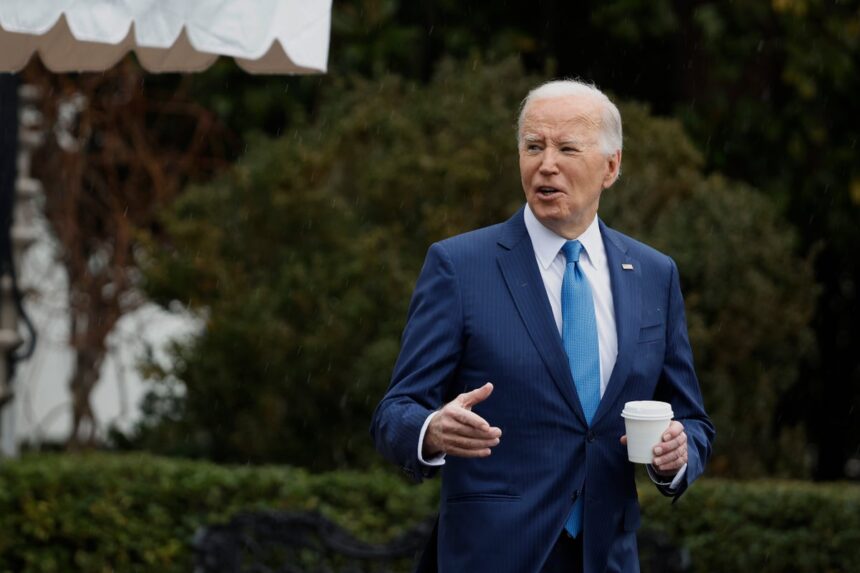In a development that has reverberated through Washington and beyond, President Joe Biden’s recent melanoma diagnosis has thrust presidential health back into the national spotlight. The 81-year-old commander-in-chief, already navigating questions about his age ahead of November’s election, now faces a medical challenge that adds another dimension to ongoing discussions about his fitness for office.
White House physicians confirmed that Biden’s skin cancer was detected during his annual physical examination last month. The lesion, removed from his chest, was identified as a basal cell carcinoma—the most common and typically least aggressive form of skin cancer. According to Dr. Kevin O’Connor, the President’s physician, the cancerous tissue was “completely removed” and “no further treatment is required.”
This diagnosis comes amid a backdrop of increased scrutiny regarding the President’s physical and cognitive capabilities. Biden, who turns 82 in November, would be 86 by the end of a potential second term—a fact that has fueled persistent questions about his stamina and mental acuity from political opponents and concerned voters alike.
Health experts note that Biden’s cancer diagnosis, while serious, is unlikely to significantly impact his ability to govern. Dr. Melissa Chen, an oncologist not involved in the President’s care, explains: “Basal cell carcinomas are highly treatable when caught early, as appears to be the case here. The five-year survival rate exceeds 99% for localized cases.”
Biden’s medical history has been well-documented throughout his political career. In 1988, he underwent surgery for two life-threatening brain aneurysms. More recently, he has been treated for atrial fibrillation (an irregular heartbeat), hyperlipidemia (high cholesterol), gastroesophageal reflux, and seasonal allergies. His previous medical reports have also noted a stiffer gait due to spinal arthritis and peripheral neuropathy in his feet.
This isn’t Biden’s first encounter with skin cancer. In 2017, before his presidency, doctors removed several non-melanoma skin cancers. White House officials emphasize that these occurrences are common among those with significant sun exposure history, particularly for someone of Biden’s generation and complexion.
The timing of this health disclosure inevitably intersects with political considerations. As Democrats solidify behind Biden’s re-election bid, Republicans—likely led by 77-year-old former President Donald Trump—continue to question Biden’s capacity to serve another term. Trump himself has faced health scrutiny, including his hospitalization for COVID-19 in 2020 and questions about his own medical disclosures.
The Biden administration has addressed the diagnosis with characteristic transparency, releasing detailed statements and making medical professionals available to answer questions from the press. This approach contrasts with historical precedents where presidential health issues were sometimes concealed from the public, such as Franklin D. Roosevelt’s polio or John F. Kennedy’s Addison’s disease.
Public reaction has been mixed, with polls showing that while many Americans express concern about Biden’s age, they also appreciate his resilience in facing health challenges. Political analysts suggest that how the President navigates this latest health issue could significantly impact voter perception heading into the election season.
For many Canadians watching closely, Biden’s health status carries significant implications given the deeply interconnected nature of Canadian-American relations. Any questions about leadership stability in Washington inevitably impact policy continuity on trade, border management, and joint environmental initiatives.
As medical experts remind us, cancer diagnoses at Biden’s age are not uncommon. According to the American Cancer Society, nearly 40% of Americans will be diagnosed with some form of cancer during their lifetime, with risk increasing substantially after age 70.
What remains to be seen is whether this latest health challenge will alter the trajectory of the upcoming election or prompt renewed discussions about age limits for high office. As voters across North America digest this information, a fundamental question emerges: In an era where presidential fitness—both physical and cognitive—has become increasingly central to political discourse, how should we balance legitimate health concerns against experience when evaluating our highest leaders?

























